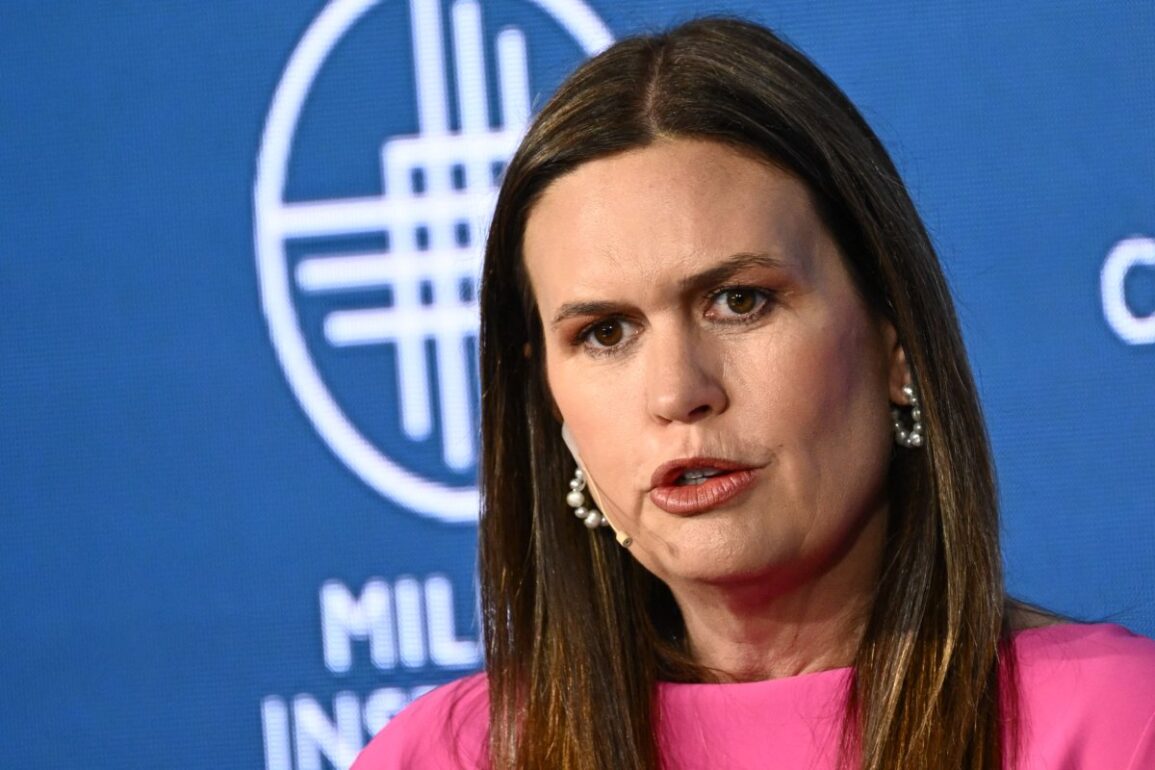Newsweek began examining criminal justice issues in Arkansas after reporting in January on the death of Larry Eugene Price, who starved to death in an Arkansas jail. His case is now the subject of a federal lawsuit.
This installment examines healthcare issues and how overcrowding and understaffing in jails and prisons across Arkansas is impacting care.
Barefoot in an Arkansas ice storm, Jennifer Johnson walked up to the drive-thru window of a McDonald’s. Suffering from bipolar disorder and schizophrenia, Johnson, 49, was in the throes of a yearlong psychotic break when the restaurant, figuring she was high, called Springdale police.
But Johnson fled, according to police records, made it back to the car she had ditched on the side of a highway and sped off, convinced Freemasons were after her. A multi-county chase ensued through the northwest corner of the state, and Johnson crashed into several police vehicles before deputies laid spikes on the road to finally stop the car. Police busted Johnson’s car window to arrest her, and she was booked into the Benton County Jail with a $50,000 bond on felony charges of endangering police officers’ lives, as well as reckless driving and fleeing the police, records show.
That was February 24, 2022. It took 20 months, until October 25, for Johnson to get into the state-run psychiatric hospital to be “restored” to continue with the criminal case and get some care for her mental condition; in the meantime, she remained in a solitary cell at the jail, in a psychosis, not getting treatment and not fit to aid in her own defense, according to the court. Benton County Sheriff Shawn Holloway said the county wasn’t capable of giving her the care she needed.
Such lack of care is not unusual in Arkansas, which has only 50 beds allocated for inmates at the only state-run psychiatric institution that deals with an incarcerated population of nearing 18,000. The facility, the Arkansas State Hospital in Little Rock, where Johnson is now, has a waiting list topping 600 court-ordered defendants, with a backlog since at least the 1990s. Almost no one can get in. And once inside, many never leave.
The dearth of help for those who need mental health services isn’t the only concern among advocates for the incarcerated in Arkansas. With all of the state’s 20 prisons over capacity and most understaffed, they say medical needs overall are often going unmet, despite a constitutional requirement to provide for the health of those who are detained. That includes care provided both by state institutions and that which is outsourced to community-run facilities and private healthcare companies.
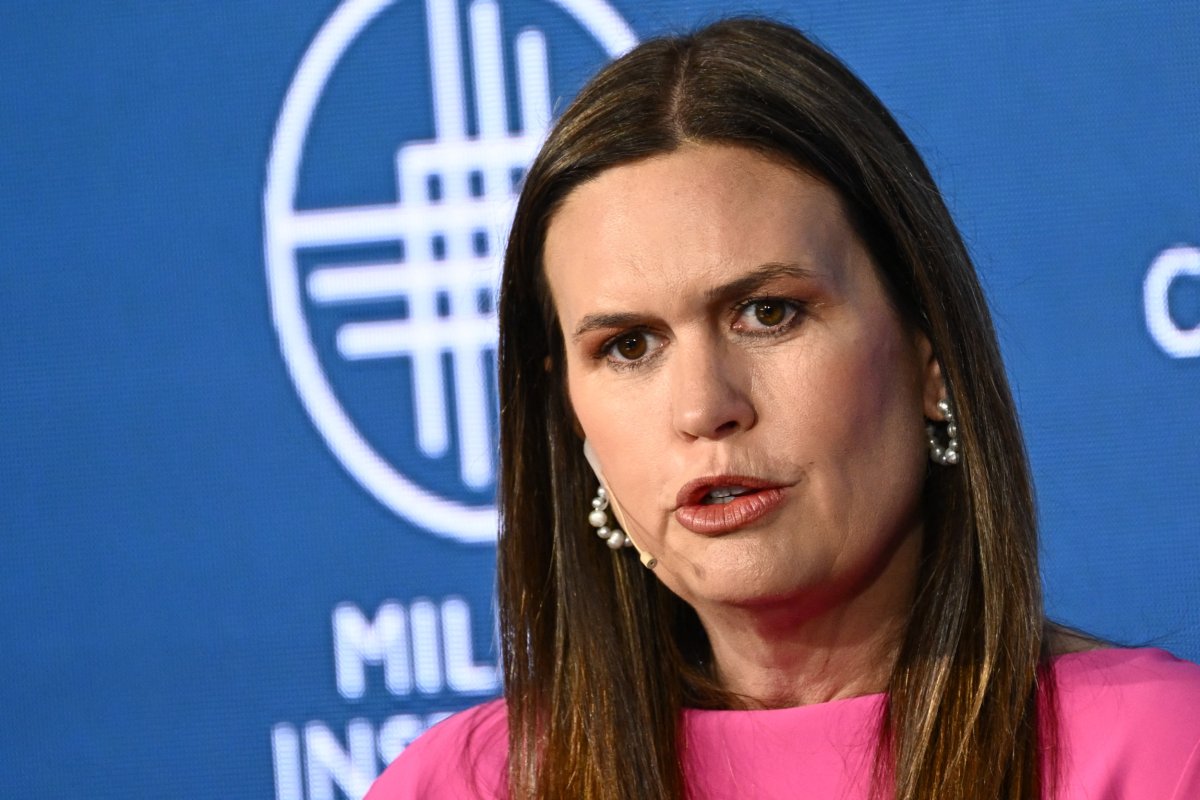
PATRICK T. FALLON/AFP/GETTY
The situation promises to get worse, critics of the justice system say, with a new state law ramping up sentences for felons and the most violent offenders. They also point to overcrowded local jails, where about 2,000 prisoners are awaiting transfer to state facilities, and the state’s recidivism rate of 46 percent as contributors to a building powder keg. The plan now calls to expand the prison capacity by a further 3,000 beds.
“We do not adequately staff or provide constitutional minimums for the people we have in lockup now,” said Holly Dickinson, head of the ACLU of Arkansas. “To continue to build more cages is to exacerbate our problem and to ensure that people’s civil and human rights are going to be violated.”
The office of Republican Gov. Sarah Huckabee Sanders would not answer Newsweek questions about medical and mental health care for inmates being inadequate, but said that overcrowding was a problem and that the prison expansion was the best way to address it.
Department of Corrections Secretary Joe Profiri said in a statement to Newsweek that it was better to expand the prison system than to house people in local jails and that it was his responsibility to make sure there was sufficient staffing to ensure the expansion could happen safely and securely.
“If I were not confident beds could be added with appropriate staff and services, I would not have proposed it,” he said.
A Brewing Battle Over Expanding Prison Capacity
The question of expanding the prison system has now brought a clash between Profiri and Governor Sanders on one side and the Arkansas Board of Corrections on the other. Even though the board is appointed by the governor, it has said it is constitutionally designated to run the system and is alarmed about overcrowding and understaffing. Last month it refused a request to temporarily expand the prison system by 622 beds on those grounds.
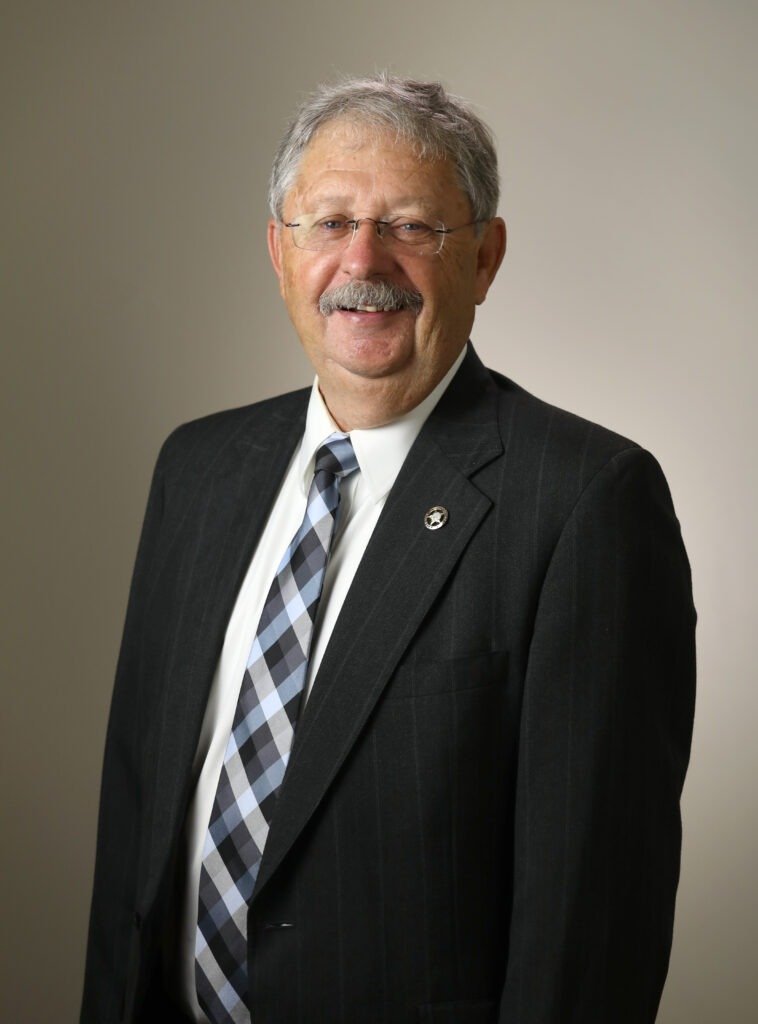



Arkansas Board of Corrections
“We are regularly sued in federal court for alleged violations of the Eighth Amendment prohibition against cruel and unusual punishment,” board president Benny Magness wrote in a letter to Sanders and state Attorney General Tim Griffin.
“The Board is duty-bound to prevent otherwise avoidable unsafe conditions in our prison system, and our experience teaches us that safer prisons lead to safer communities within which our prisons operate,” Magness wrote.
Last week, the board said it had suspended Profiri and filed a lawsuit against Sanders, Profiri and the corrections department, claiming the Protect Arkansas Act is “unethical, dangerous, and reckless.” The filing seeks to retain control of corrections to protect against “political efforts to dangerously overcrowd prisons” and “the human harm that dangerous prison situations can create.”
Sanders has stood by Profiri, who has dismissed the board’s decision to suspend him. The suit claims the governor and secretary run the risk of adding beds “without a fully informed and vetted plan.”
All State Prisons Over Capacity
The state’s own data, provided to Newsweek by the Arkansas Department of Corrections, shows that all prisons are over 100 percent capacity. The Delta Regional Unit in the southeastern part of the state, for example, was reported at 133.1 percent capacity while North Central Unit, about 130 miles north of Little Rock, was at 132.9 percent.
With all Arkansas state prisons counted, the state’s corrections system is at 109 percent capacity.
The turnover of security staff in Arkansas prisons, which the department put at 37 percent in 2021, is also a compounding problem.
Take Wrightsville. While it’s one of the few prisons just over capacity, at 101.2 percent, it has an officer staffing vacancy rate of 53.9 percent—or 39 percent when their supervisors are counted. Tucker, with 100.8 percent capacity, had the highest officer vacancy rate at 64.3 percent.
Dr. Melanie Jones, a physician who worked in Arkansas’ Wrightsville Prison from 2012 to 2020, said medical and mental health concerns are low priorities under such circumstances. With watch stations not fully staffed, inmates are not monitored as frequently. She noted that it also requires multiple guards to transport an inmate to see medical staff, and when staffing isn’t available, it just doesn’t happen.
Jones said medical staff are “not supposed to have eye contact with the patients” without the direct supervision of corrections officers, who need to escort inmates at all times. She also said that one officer needs to be at the door of the medical unit, another has to man the barracks or halls where inmates are kept, and still another must be “close by” when any treatment is given.
With at least three officers are needed for a single medical visit, it takes many staff to handle a health call, making understaffing and overcrowding a more pronounced issue.
While state prisons have full-time medical units, they often lack enough staff to keep up with the medical demand. The same is true for overcrowded local jails, which mostly contract with private providers who visit only periodically.
“It’s no secret that overcrowding is a problem,” said Alexa Henning, Sanders’ spokeswoman, adding that this was why the expansion was so important, why the governor had made it part of her campaign and why the corrections board was wrong to try to block it. “There’s just not room, and we want to stop the revolving door of these repeat offenders, these violent repeat offenders’.”
One way to ease overcrowding could be to use the state’s Emergency Powers Act. It was historically used to release low-level offenders who are close to their eligibility for parole when prisons are at capacity, but that has not happened since Sanders took office.
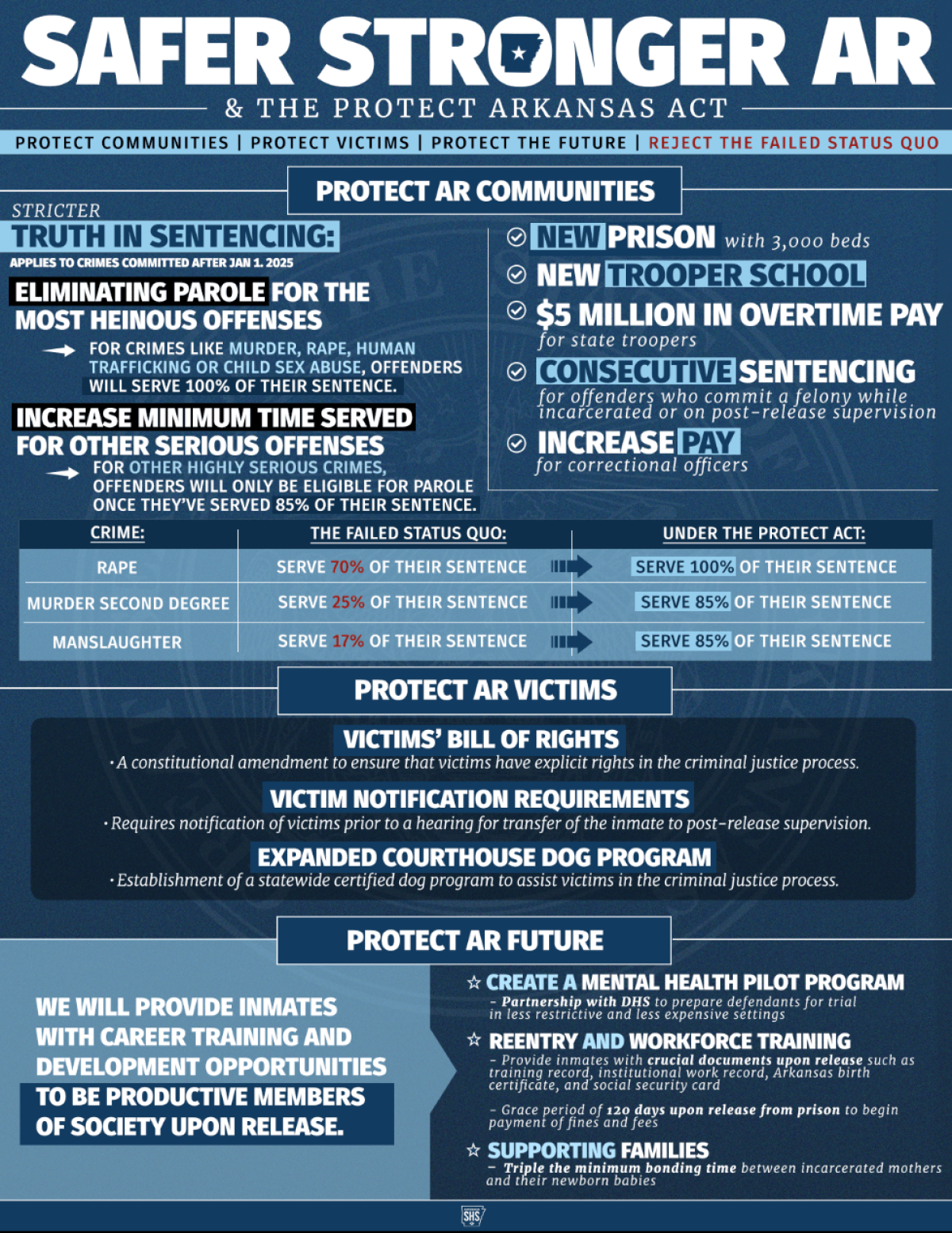



Arkansas Governor’s Office
“We have not requested, nor do we have any intent to request, the Emergency Powers Act,” Profiri told Newsweek. “I firmly believe it underscores this governor, her commitment to criminal justice, her commitment to safer communities and her willingness to invest to do what’s necessary to keep individuals in prison…and not engage in a process where there’s early release because of overcrowding.”
‘They’re Not Treated as Humans’
For inmate advocates like Arkansas Prison Watch, which has received thousands of letters and messages from inmates about troubling conditions, including many claiming lack of access to health care, it’s an untenable mix that spells danger for the severely ill, the injured and the mentally ill.
In addition to corrections officer staffing, medical staffing is down in Arkansas’ state prisons, said Teresa Norman, who runs the prison watch organization and believes the authorities simply don’t care about the incarcerated.
“They’re not treated as humans,” she said.
Tammie Gregg, a former top deputy in the U.S. Justice Department’s Civil Rights Division who is now deputy director of the ACLU National Prison Project, said “the lack of oversight and the fact of people being crowded in those conditions…often leads to violence. And it often leads to excessive force, and that’s incarcerated person on incarcerated person, as well as staff on incarcerated person.”
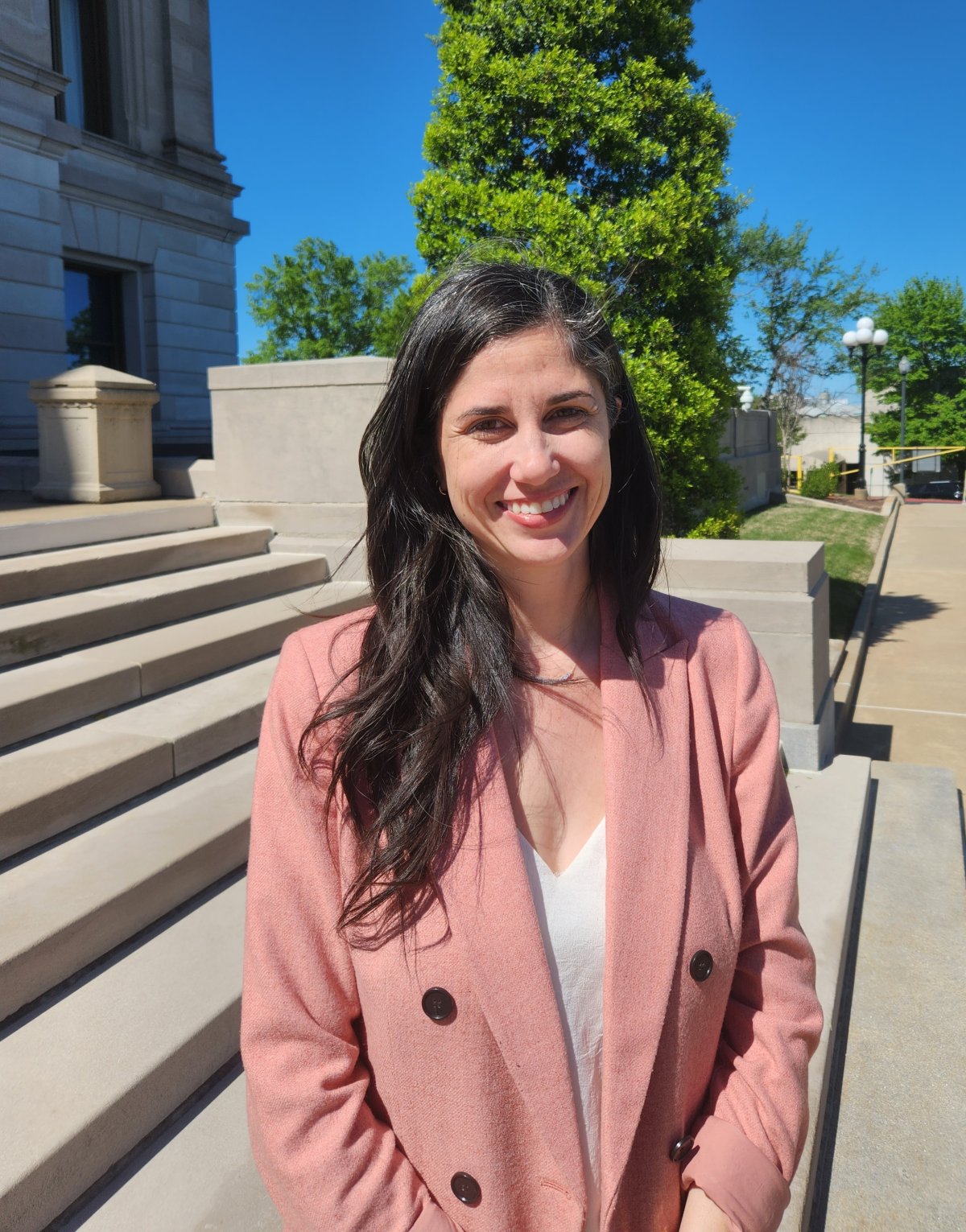



Valerie Bauman
For Nicole Clowney, a Democratic state representative from Fayetteville, this is why more money should be going into alternatives to incarceration. ”We can never build enough prison beds to stop crime in our state,” she said.
Dickson also criticized what she said was the new law’s seeming lack of consideration for inmate well-being.
“If you need one nurse and one practitioner for a population of X number of inmates, and that population has increased—but they have not increased the corresponding required (staffing) support to meet the medical and mental health needs, then (inmates) are going to suffer and go untreated,” she said.
For Holloway, the sheriff who tried to get Johnson help, the issue often boils down to money. He said he tried to get a mental health pod at his facility, but voters shot it down.
For the first year Johnson was in jail, Bridges, her mother, had almost no contact with her. It wasn’t until she got the attention of the Benton County Sheriff’s Department and talked with officials like Holloway that she was able to explain her daughter’s situation in some depth. From that point, she was able to send care packages and start sending messages back and forth with Johnson.
“It’s kind of a double-edged sword,” Bridges said. “It’s anguish not being able to contact her and know how she’s doing because of her mental state. But then, knowing is not good either.”
Bridges took to writing legislators, and working with Jon Comstock, a former judge in Benton County, and the sheriff’s office there. Finally, in October, after Johnson’s case was transferred to three different judges and ended up before Judge Brad Karren, Bridges said Johnson’s case got the needed attention and she was placed in the state psychiatric hospital. At the hearings, Karren subpoenaed the Arkansas State Hospital to get details on why it is so backlogged. A hearing on the hospital’s conditions, including the backlog, is scheduled for Jan. 9.
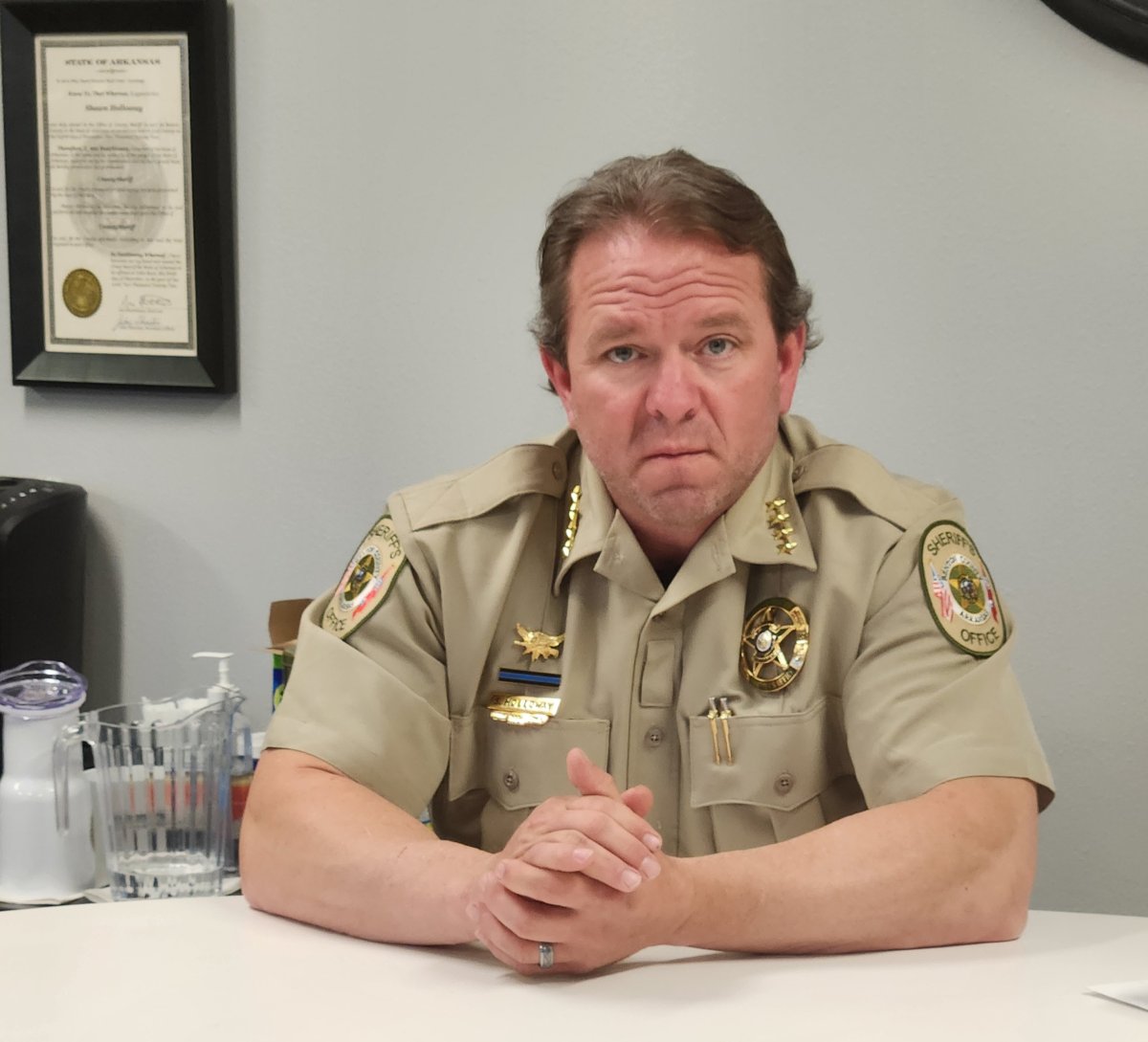



Valerie Bauman
Part of the reason it took so long was because the court didn’t find Johnson unfit to proceed in the criminal case until December 12, more than nine months after she was first locked up, two months after the forensic report found Johnson “unfit to proceed” and seven months after her attorney first raised the issue. And it took almost another full year to get room in the hospital before a judge ordered her sent there, according to emails showing the timeline sent to Newsweek.
For those facing criminal charges, the hospital is often the only facility in the state that can legally “restore” them, unless they can afford private psychiatric treatment. There are also 12 contracted doctors around the state, but they don’t always meet a 45-day legal deadline to assess a defendant’s ability to proceed with the legal process, said Buster Lackey, executive director of the Arkansas office of the National Alliance on Mental Illness (NAMI).
The state has four 24-hour Crisis Stabilization Units to treat people with urgent mental health needs who might otherwise end up in the criminal justice system. But many of the CSUs go underutilized as they face financial pressures from the state and are funded at a fraction of what is dedicated to the prison system. Without more resources, inmates are left in limbo.
Take Little Rock. The city has a jail with a capacity for 999 inmates but has more than 1,300 locked up—with 200 of them waiting for admission to the Arkansas State Hospital, Lackey said. The state’s $3 million for CSUs is not enough to handle the demand, critics say.
“We have a lot of people who are at our facility who got here because they broke the law…but they’re not criminals,” Holloway said. ”They need help from psychiatrists and counselors.”
Now that she’s in the state psychiatric hospital, Bridges said her daughter is “doing better each time I talk to her,” and that plans are being made to get her into a group home when Johnson gets released.
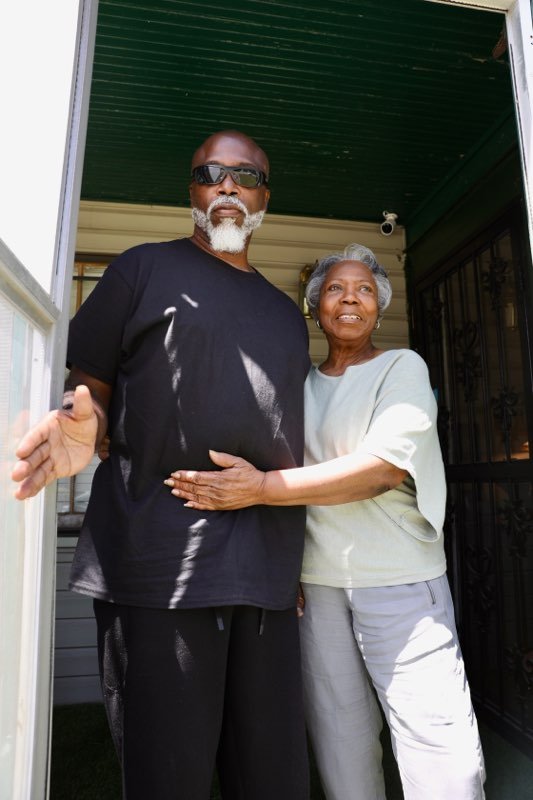



Matt White
Indifference Harder To Fight
Terrance Proctor knows the system and lack of medical care inside well.
Sentenced to 200 years plus life in prison, Proctor was locked up more than 40 years in various Arkansas prisons for participating in a string of armed robberies when he was 17. Eventually, after a new law easing sentences for those locked up as minors took effect, he won his release from the Varner Supermax prison, about 30 miles south of Pine Bluff. But it was not before his back was broken, allegedly by prison officers, three times, according to his medical, prison and legal records. He was stabbed 22 times during his incarceration. It took him 18 years and multiple lawsuits to get the two surgeries he needed.
“I got rods and everything placed in my back when they stomped and kicked me and broke my back,” Proctor said.
His long journey to get care was the result of something that’s harder to fight in correctional facilities, critics say: Indifference.
“There’s an element that, well, inmates deserve to be punished, not understanding that the actual incarceration is the punishment,” Dickson said. “There’s nothing else that should be cruel or unusual punishment in any way.”
Eric Ferkenhoff can be reached at e.ferkenhoff@newsweek.com, or follow him @EricFerk
Valerie Bauman can be reached at v.bauman@newsweek.com, or follow her @ValerieReports
Uncommon Knowledge
Newsweek is committed to challenging conventional wisdom and finding connections in the search for common ground.
Newsweek is committed to challenging conventional wisdom and finding connections in the search for common ground.
This post was originally published on this site be sure to check out more of their content.




